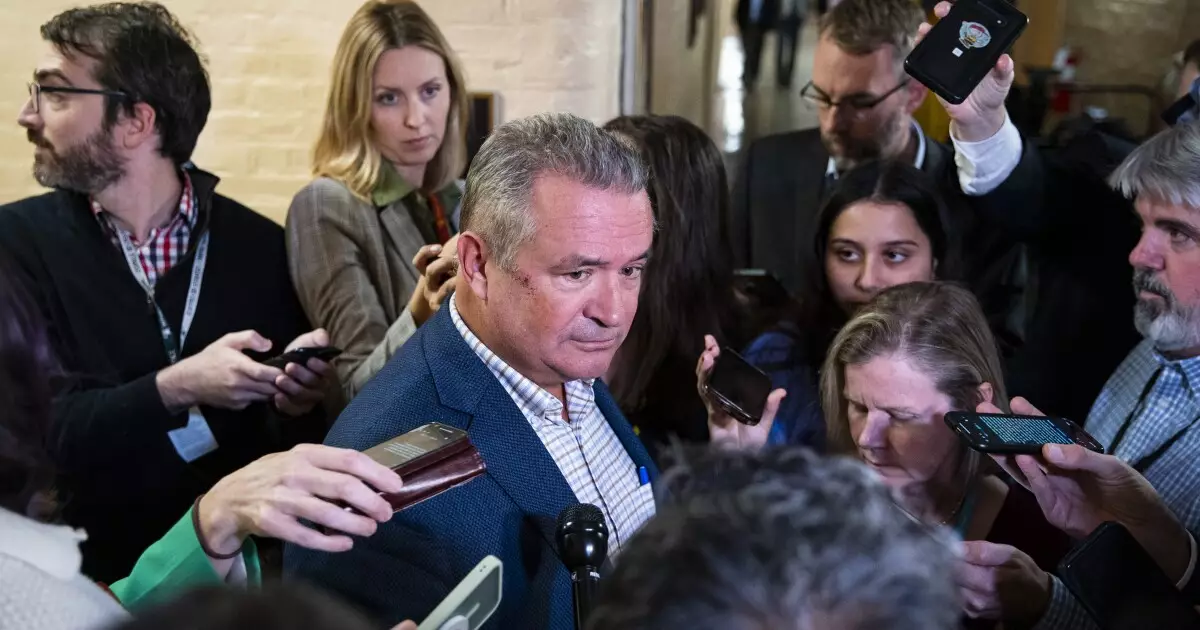The upcoming letter by Nebraska Representative Don Bacon serves a pivotal purpose in the tumultuous arena of public finance: it emphasizes the significance of tax-exempt municipal bonds amidst dire fiscal predictions. In the backdrop of potential cuts that threaten to disrupt local economies, Bacon’s call for preservation is not merely poetic—it is a desperate plea for the lifeblood of community growth. The looming crisis prompted by proposals within his party threatens a financial tool that has fundamentally supported infrastructure and job creation.
Tax-exempt municipal bonds have been cornerstones for local governments, enabling them to fund educational institutions, transportation systems, and public amenities without overburdening taxpayers. The idea of jeopardizing this model as part of a broader tax structure overhaul is not only misguided; it is a direct attack on local governance. The financial ramifications could be catastrophic—not just for urban centers like Omaha but also for small towns and rural communities that rely heavily on these instruments.
The Economic Ramifications of Neglect
The implications of eliminating the tax exemption position cities on a precarious edge. Should these bonds vanish from the financing landscape, local governments would struggle to raise funds for essential public projects. This destruction of fiscal capability would not only decrease the quality of life but could also result in layoffs in the public sector, exacerbating unemployment rates. With job growth inextricably linked to local investment in infrastructure, the negation of tax-exempt bonds is tantamount to a deliberate throttling of economic vitality.
Representative Bacon’s position as a champion for local governance cannot be overstated. Positioned in a “purple” district, his bipartisan outreach certainly plays to the need for regional stability. The support from organizations like the National League of Cities (NLC) illustrates a unified front among local leaders who recognize the urgency of this moment. If congressional members rally behind Bacon, the result would be a collective safeguard against financial myopia from higher echelons of government.
Political Dynamics and Local Control
In the broader political spectrum, the conversation around tax-exempt municipal bonds brings localized issues to the national stage, showcasing the dependency of communities on federal policy. Representatives must stand as defenders of local control, ensuring that the decisions affecting their constituents stem from the ground up, rather than a top-down approach that fails to consider the realities of municipal finance.
The mounting pressure from Bacon’s letter reflects a growing acknowledgment that the value of governance starts at the community level. As he points out, tax-exempt bonds serve as a “critical tool” for state and local governments seeking to fulfill their obligations to constituents. Losing this weapon in the arsenal would lead to an erosion of local autonomy, where bureaucratic decisions from afar jeopardize grassroots development efforts.
Pushing Back Against Misguided Economic Strategies
Amidst the rhetoric of so-called fiscal responsibility, we need to ask ourselves: at what cost? The GOP’s focus on tax restructuring should not come at the expense of essential revenue mechanisms that underpin the very frameworks of our communities. The tax-exempt status of municipal bonds has a proven record of fueling robust, independent local economies. Stripping it away in the name of balancing a budget is not just shortsighted; it is a profound miscalculation that will resonate for generations.
One cannot help but admire the genuine attempts by organizations like the NLC to mobilize support. Their success hinges on the engagement of legislators capable of grasping the local economic landscape. The diversity of voices should be heard loud and clear within the hallowed halls of Congress. Effective representation must encompass understanding the magnitude of impact these financial instruments have on everyday Americans, especially in less urbanized districts.
In raising awareness, advocates are not just preserving a funding model; they are asserting the fundamental right of communities to thrive. As Congress reconvenes and deliberations heat up, the stakes have never been clearer. Addressing local funding needs should transcend party lines and serve as a reminder—a call to action—that the financial instruments supporting our communities deserve safeguarding, not dismantling.

